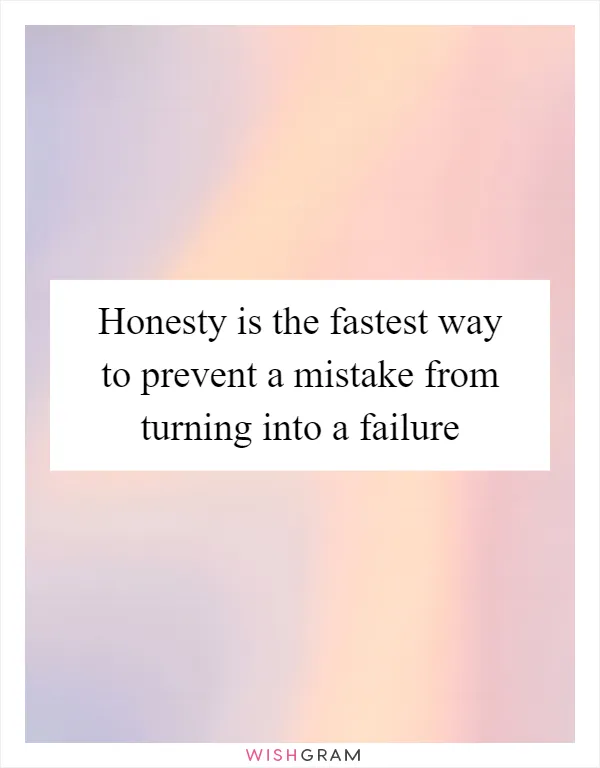Honesty is the fastest way to prevent a mistake from turning into a failure
In life, we all make mistakes. It's a natural part of being human. But what sets successful people apart is their ability to prevent these mistakes from turning into failures. How do they do it? Well, the answer lies in one simple word: honesty.
When we make a mistake, our first instinct may be to hide it or brush it under the rug. We fear the consequences and the judgment that may follow. However, this approach only prolongs the problem and increases the chances of it snowballing into a full-blown failure. On the other hand, being honest about our mistakes allows us to address them head-on and find a solution before it's too late.
Honesty acts as a powerful tool in preventing mistakes from escalating. By acknowledging our errors, we gain a clear understanding of what went wrong and why. This self-awareness is crucial in avoiding similar missteps in the future. It enables us to learn from our mistakes and grow both personally and professionally.
Moreover, honesty fosters trust and transparency in our relationships, whether they are personal or professional. When we admit our mistakes to others, it shows them that we value their trust and respect. It demonstrates our integrity and willingness to take responsibility for our actions. This, in turn, strengthens the bond between individuals and creates an environment where mistakes are seen as opportunities for growth rather than sources of shame.
Furthermore, being honest about our mistakes allows us to seek help and guidance from others. We all have different strengths and weaknesses, and no one expects us to be perfect. By admitting our mistakes, we open ourselves up to the wisdom and support of those around us. This collaborative approach not only prevents mistakes from turning into failures but also promotes a culture of continuous improvement.
It's important to remember that honesty is not just about admitting our mistakes to others; it's also about being honest with ourselves. We must be willing to confront our own shortcomings and biases. This self-reflection enables us to identify areas where we need to improve and make necessary adjustments. By doing so, we can prevent future mistakes and ensure our personal and professional growth remains on track.
